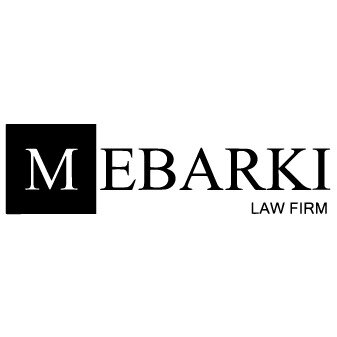Best Health Care Lawyers in Algeria
Share your needs with us, get contacted by law firms.
Free. Takes 2 min.
Or refine your search by selecting a city:
List of the best lawyers in Algeria
About Health Care Law in Algeria:
Health Care in Algeria is governed by a combination of laws and regulations that aim to provide access to healthcare services for all citizens. The healthcare system is primarily funded by the government, although private healthcare providers also play a role in delivering services. Patients in Algeria have the right to receive medical treatment, at public hospitals or private clinics, based on the principle of universal health coverage.
Why You May Need a Lawyer:
There are several situations where individuals may need legal assistance in the field of Health Care in Algeria. These include disputes over medical malpractice, issues related to healthcare insurance coverage, navigating the healthcare system, and ensuring proper compliance with healthcare regulations.
Local Laws Overview:
Key aspects of local laws that are particularly relevant to Health Care in Algeria include the Healthcare Institutions Law, which governs the operation and regulation of hospitals and medical facilities, the Healthcare Professionals Law, which outlines the qualifications and requirements for healthcare providers, and the Patient Rights Law, which safeguards the rights of individuals seeking medical treatment.
Frequently Asked Questions:
1. What are my rights as a patient in Algeria?
Patients in Algeria have the right to receive appropriate medical treatment, be fully informed about their health condition, and consent to treatment procedures.
2. How can I file a complaint against a healthcare provider in Algeria?
You can file a complaint with the Ministry of Health or seek legal assistance to address grievances against a healthcare provider.
3. Are there any regulations for healthcare advertising in Algeria?
Yes, advertising of healthcare services is regulated to ensure accuracy and transparency in the information provided to patients.
4. Can I opt for private healthcare services in Algeria?
Yes, individuals can choose to receive healthcare services from private providers in Algeria, but should ensure that the facility meets regulatory standards.
5. How does the government regulate healthcare pricing in Algeria?
The government sets guidelines for healthcare pricing to ensure affordability and accessibility of healthcare services for all citizens.
6. Are there specific laws for mental health care in Algeria?
Yes, there are laws that govern the provision of mental health services and protect the rights of individuals with mental health conditions.
7. Can healthcare providers refuse treatment to patients in Algeria?
Healthcare providers cannot refuse treatment to patients based on discriminatory reasons and must provide care to all individuals in need.
8. How does health insurance work in Algeria?
In Algeria, health insurance is mandatory for all citizens, and the government provides coverage for basic healthcare services. Individuals can also opt for private health insurance for additional coverage.
9. What are the penalties for medical malpractice in Algeria?
Medical malpractice is subject to legal action, and healthcare providers found guilty may face fines, suspension of licenses, or other disciplinary measures.
10. Can I access my medical records in Algeria?
Patients have the right to access their medical records and request copies for personal reference or for legal purposes.
Additional Resources:
For more information on Health Care Law in Algeria, you can refer to the Ministry of Health website, the Algerian Medical Council, or seek guidance from legal organizations specializing in healthcare law.
Next Steps:
If you require legal assistance in the field of Health Care in Algeria, it is advisable to consult with a specialized healthcare lawyer who can provide guidance on your rights, responsibilities, and options for resolving any legal issues you may encounter.
Lawzana helps you find the best lawyers and law firms in Algeria through a curated and pre-screened list of qualified legal professionals. Our platform offers rankings and detailed profiles of attorneys and law firms, allowing you to compare based on practice areas, including Health Care, experience, and client feedback.
Each profile includes a description of the firm's areas of practice, client reviews, team members and partners, year of establishment, spoken languages, office locations, contact information, social media presence, and any published articles or resources. Most firms on our platform speak English and are experienced in both local and international legal matters.
Get a quote from top-rated law firms in Algeria — quickly, securely, and without unnecessary hassle.
Disclaimer:
The information provided on this page is for general informational purposes only and does not constitute legal advice. While we strive to ensure the accuracy and relevance of the content, legal information may change over time, and interpretations of the law can vary. You should always consult with a qualified legal professional for advice specific to your situation.
We disclaim all liability for actions taken or not taken based on the content of this page. If you believe any information is incorrect or outdated, please contact us, and we will review and update it where appropriate.
Browse health care law firms by city in Algeria
Refine your search by selecting a city.












